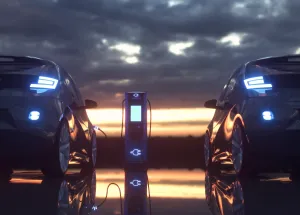My son just recently got his driver's license. Sitting in the DMV with him reminded me of
when I got my license and the sense of freedom that it gave me. It can be quite liberating when you are
young. But it also got me thinking about
my elderly mother, and when would be the right time for her to give up the car
keys.
No matter how well meaning we are at the Thanksgiving table trying to
convince them to stop driving themselves we have to remember that loss of
freedom is coming for us one day.
However, we do know that as we age, our reflexes decrease, our eye sight
is not as sharp as it was and the overall safety of being behind the wheel
dramatically decreases. Even though
older drivers drive less frequently than other age groups, when measured not by
the number of crashes per driver, but by crashes per mile driven, the data
shows a substantial rise in crashes after the age of seventy.
There is no set age that determines when someone should stop driving. Many people can drive into their late 80s and
90s. Many older people are able to
compensate because of years of driving experience and safe behavior. In fact older drivers are not only more
likely to obey speed limits, wear safety belts and take fewer risks than other
age groups, but they are also less likely to drive while under the influence of
alcohol. However, most people continue
driving for 7-10 years longer than they should.
Most states only require you to pass a vision test to renew your
license. This means that a senior will
continue to drive unless the family gets involved in taking away the keys.
So what are some warning signs that it's time to stop driving? Driving too
fast or slow; staying in the lane; hitting curbs; gaining dents or scratches on
the car, are all signs to look for.
Getting lost when driving and having trouble reading street signs are
also signs to be aware of.
No one wants to upset their loved ones, but having a conversation is the first
step. Be non-accusatory to avoid a
hostile conversation. Use questions like: "I'm finding it difficult to see well
when I'm driving at night, Does this ever happen to you?" or "I know I get
nervous when people speed right past me, how about you?". Also encourage them to get an updated eye
exam. You may find that a poor exam will
convince them that it is time. Stress
your concern for safety. People over 70
involved in a car accident are more likely to be seriously hurt or require
hospitalization.
Finding transportation alternatives is an important step. If the senior does not know how they will
still get around, they will never make the decision to give up the keys. Research
available transportation options. Look
for the local area Agency on Aging for ideas.
If there is a family member that can pitch in for driving duties, make a
schedule, so all transportation activities can be done on the same day. And with ride apps like Uber, teach your
senior how easy it is to use. If they
complain about the cost, just show them a comparison of the cost of maintaining
their own car versus the ride sharing expenses.
When you add up insurance, gas, quarterly maintenance, parking and other
expenses they are currently spending, they will probably find that the once or
twice a week Uber is a better deal. If
they sell their car, they can probably cover those expenses for many years.
In the end, we want our loved ones to be safe, but you must be respectful to
the senior's situation. Remember, you
are going to be there one day.
If you would like to receive more information on making smart money moves for your future, be sure to contact us today!





